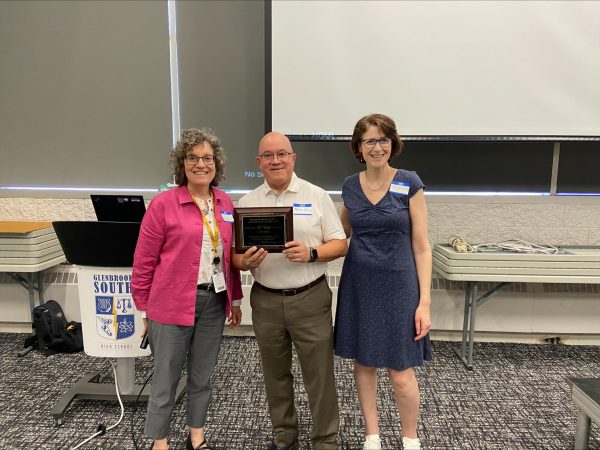New Year, New Laws
February 10, 2017
As 2017 begins, here are three of the nearly 200 new Illinois state laws to be aware of.
DRIVER’S ED COP STOP LAW
The State of Illinois Drivers’ Education curriculum has been amended by a new law requiring driving instructors to explain what to do when pulled over by the police. Additionally, this law is an attempt to alleviate the frequent miscommunications between police officers and civilians during traffic stops.
According to John Skorupa, GBS Driver’s Ed instructor, “Due to the increased tensions we have [developed] between society and law enforcement, this law was brought forth to put together a lesson plan that would encourage driving teachers to explain to students what they need to do when they’re stopped by the police.” Although this is a new requirement, the GBS Driving instructors have been teaching the protocol for years.
BILINGUAL SPEAKERS LAW
Now, when a student earns the State Seal of Biliteracy, a form of recognition for students with intermediate to high proficiency in a foreign language, they can opt out of two years of foreign language in any public university. This Seal can be awarded by scoring a 4 or 5 on the AP Language Exam or by scoring well on a less expensive external test created for those not enrolled in AP. In fact, over 30 students from last May’s AP testing will receive the Seal of Biliteracy come graduation.
According to Danita Fitch, the head of the GBS World Languages department, “[This law] brings to the forefront some of the true benefits of language and models what a student should be able to do with that level of language proficiency.”
BEAUTY PROFESSIONALS LAW
In January, Illinois became the first state to pass legislation that requires hair salon employees to attend training that instructs them on how to identify signs of domestic abuse and sexual assault. In order to obtain or renew their professional licenses, cosmetologists and hairdressers must attend an hourlong course every two years. These beauty professionals are not mandated reporters-who are legally required to report suspicions of abuse- but are commonly the link between suspected victims and support services.
According to Vickie Smith, executive director of the Illinois Coalition Against Domestic Violence, “The more the public recognizes what domestic violence and sexual assault looks like, the more we are all likely to be able to say, ‘This is not your fault, there is help you can get, you don’t have to live like this,” Smith said. “It’s a form of prevention.”








